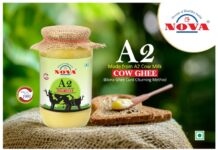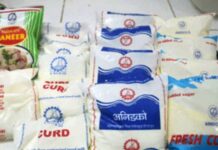Provide your calves with the right nutrition at the right time, every time
New Delhi, May 25, 2017: Calf nutrition programs come in all shapes and sizes, and every calf raiser has unique goals. The best calf nutrition program is one that delivers the best results to meet your individual needs.
We understand calf raisers’ goals are not all the same. Regardless of your goals, it’s important to provide calves with the right nutrition at the right time, every time. Calves can face a variety of unique challenges. Look to a flexible line of calf nutrition and health products, such as the Calf Solutions® portfolio, to help your calves feel and perform their best while also meeting your business needs.
Use nutritional tools to help optimize calf health from birth to weaning:
- Quality colostrum sets the stage for lifetime performance
Getting newborn calves off to a great start begins with feeding high-quality colostrum. In general, the sooner calves get colostrum – and the higher the amount of colostrum fed at first feeding – the better the transfer of immunity.[1]
When high-quality maternal colostrum is not available, feed colostrum replacers derived from bovine colostrum. A highly concentrated colostrum replacer should provide at least 150 grams of globulin protein per calf feeding to achieve successful passive transfer.
- Whole milk: Make a good thing even better
Whether you feed whole milk or a combination of whole milk and milk replacer, find the balance that’s right for your calves. Whole milk supplements can help enhance or extend your current whole milk supply.
Whole milk balancers can help optimize the protein-to-fat ratio to support accelerated growth calf nutrition programs.
Whole milk extenders are formulated to help minimize pasteurized milk supply inconsistencies. They also help deliver protein and fat for economical daily gain, while providing calves with necessary vitamins and organic trace minerals.
Whole milk fortifiers can help provide calves with a consistent amount of vitamins and organic trace minerals, which are often deficient in whole milk.
- Maintain a toolbox of calf health solutions
Taking proactive measures can help mitigate calf health challenges. If health issues do arise, having a selection of health solutions on-hand can help you provide calves with the additional support they need.
Some key proactive calf health solutions include:
- Keep calves hydrated: Choose an electrolyte that does more than just rehydrate. Look for a product to hydrate, energize and colonize beneficial microbes in a calf’s gut at the onset of a health challenge.
- Help build calf immunity: Take a proactive stance on health with immunity support supplements to help balance gut microflora and antioxidant activity in a calf’s digestive system.
- Treat scours and pneumonia: At the onset of scours or pneumonia, streamline your calf health regimen by using a treatment concentrate which you can easily add to non-medicated milk replacers. Treatment concentrates may be impacted by the VFD. Be sure to check with your veterinarian before using them.
- Keep pesky flies away: An economical way to add fly control to whole milk or milk replacer is by using a fly control add-pack.
When it comes to calf nutrition, every perspective matters. To build your program and learn more visit calfsolutions.com.
Dairy Business

































